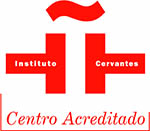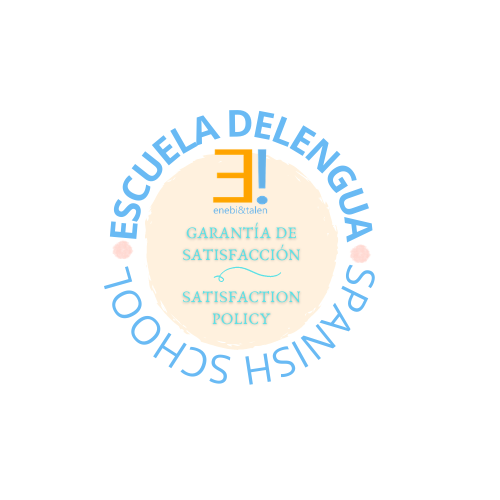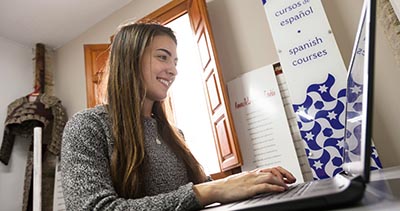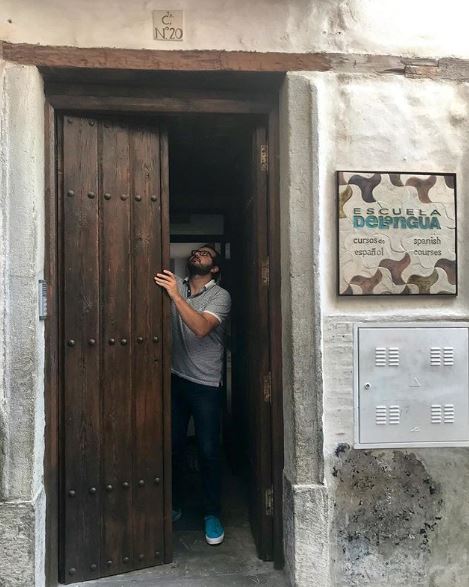How can I get a student visa to do a Spanish course in Spain?
To do a Spanish course in Spain:
- A visa is not required for Schengen Area members.
- A visa is not required for citizens of some countries for stays of up to three months. For stays of over three months for these countries mentionned below, a visa is required.
- A visa is required for all other countries regardless of the length of stay.
(see the list of the countries)
Students who wish to participate in Spanish courses in Spain and who come from a country that requires a visa to enter Spain should ask their Spanish embassy or consulate for information on the requirements for studying in Spain before completing the registration form.
In general, the following documents are needed when applying for a visa:
- A correctly completed printed visa application
- A passport valid for the duration of period specified in the visa application, student ID, ID
- Recent passport photographs, envelopes
- Confirmation letter from the Spanish school
- Health insurance covering all medical expenses for the duration of the stay and repatriation costs associated with an accident or sudden illness.
- Evidence of sufficient funds to study in Spain (copy of scholarship certificate or financial help, letter from parents or tutors taking full responsibility for the accommodation costs and living expenses)
- Police clearance certificate
- Health Certificate
In the case of underage students who will not be accompanied by their parents, parental authorisation is required for studies to take place.
Conditions for doing a Spanish course at Escuela Delengua in Granada
Students from countries which require a visa for entry into Spain and who wish to do a Spanish course must read the previous section carefully before applying, in order to find out the requirements for studying in Spain.
The student is responsible for the entire visa application process, and Escuela Delengua is not at fault if permission is declined.
If the student needs a confirmation letter from the school in order to apply for the visa, Delengua will send the letter after having received at least 50% of the total price of the booking. This letter certifies that the student is matriculating in a Spanish course and in it will feature the student´s name, the type of course, the dates of study, the address of the accommodation assigend to the student and the payment received. It is signed by the Director of Escuela Delengua and has the centre´s stamp.
If the student cannot attend the Spanish course due to the rejection of the visa application, he/she must send the original official rejection letter to the school at least three weeks before the start of the Spanish course in Granada in order to obtain a refund of his/her deposit. All money minus administrative costs (bank transfers, telephone calls, faxes, priority mail, etc) will be returned.
If we receive the cancellation less than three weeks from the start of the Spanish course, we are not able to make any refund.
Our advice is to begin the application process at least three months before the start of the Spanish course, in order to have sufficient time to obtain the visa.
List of countries
A visa is not required for citizens of the following countries:
- Austria, Belgium, Bulgaria, Czech Republic, Cyprus, Denmark, Estonia, Finland, France, Germany, Greece, Hungary, Iceland, Ireland, Italy, Latvia, Lithuania, Luxembourg, Malta, Netherlands, Norway, Poland, Portugal, Romania, Slovakia, Slovenia, Spain, Sweden, Switzerland.
A visa is not required for any stay of less than three months. For stays of longer than three months, a visa is required for citizens of the following countries:
- Andorra, Argentina, Australia, Bolivia, Brazil, Brunei, Bulgaria, Canada, Chile, Costa Rica, Croatia, El Salvador, United States, Guatemala, Honduras, Hong-Kong - Special Administrative Region (Citizens of the Republic of China), Israel, Japan, Liechtenstein, Malaysia, Macao - Special Administrative Region (Citizens of the Republic of China), Mexico, Monaco, Nicaragua, New Zealand, Panama, Paraguay, Republic of South Korea, San Marino, Santa Sede, Singapore, Switzerland, United Kingdom, Uruguay, Venezuela.
A visa is obligatory regardless of the duration of stay for citizens of the following countries:
- Afghanistan, Albania, Algeria, Angola, Antigua and Barbuda, Saudi Arabia, Armenia, Azerbaijan, Bahamas, Bahrain, Bangladesh, Barbados, Belarus, Belize, Benin, Butan, Burma/Myanmar, Bosnia & Herzegovina, Botswana, Burkina Faso, Burundi, Cape Verde, Cambodia, Cameroon, Chad, China, Colombia, Comores, Congo, North Korea, Ivory Coast, Cuba, Djibouti, Dominican Republic, Ecuador, Egypt, United Arab Emirates, Eritrea, Ethiopia, Fiji, Gabon, Gambia, Georgia, Ghana, Grenada, Guinea, Guinea-Bissau, Equatorial Guinea, Guyana, Haiti, India, Indonesia, Iran, Iraq, Jamaica, Jordan, Kazakstan, Kenya, Kyrghistan, Kiribati, Kuwait, Laos, Lesotho, Libano, Liberia, Libia, Macedonia, Madagascar, Malawi, Maldives, Mali, Northern Marianas, Morocco, Marshall Islands, Mauritius, Mauritania, Micronesia, Moldova, Mongolia, Montenegro, Mozambique, Namibia, Nauru, Nepal, Niger, Nigeria, Oman, Pakistan, Palaos, Papua New Guinea, Peru, The Philippines, Qatar, Central African Republic, Democratic Republic of Congo, Dominican Republic, Russia, Rwanda, Solomon Islands, Samoa, St. Vincent and the Grenadines, St. Kitts & Nevis, St. Lucia, Sao Tomé & Principe, Senegal, Serbia, Seychelles, Sierra Leone, Siria, Somalia, Sri Lanka, South Africa, Sudan, Surinam, Swaziland, Thailand, Taiwan, Tanzania, Tajikistan, East Timor, Togo, Tonga, Trinidad & Tobago, Tunisia, Turkmenistan, Turkey, Tuvalu, Ukraine, Uganda, Uzbekistan, Vanuatu, Vietnam, Yemen, Zambia, Zimbabwe, Palestine, West Timor.
Questions?
- Can foreign students work in Spain?
Yes, as long as they obtain the corresponding authorisation, and the work does not get in the way of their studies.
- Can the relatives of foreign students come to Spain?
Yes, but they must obtain the correct visa that allows them to stay for the same length of time as the student.
- Is it possible that the Consulate will call in order to conduct a personal interview with the person requesting the visa?
Yes, the personal interview is used by the Consulates when they wish to obtain further information about the application. They can summon you to appear before them within 30 days.
- What happens if I don´t go to the interview?
The visa application is archived. If there were any serious reason why you would not be able to attend within the deadline, you should make them duly aware of it.
- What proof do I have that I have applied for the visa?
Once you have made your application, the Consulate has to deliver to you a stamped copy of that application in which the date and place of application will appear. If they do not deliver it at the time, they must send it by registered mail to the address specified by the applicant, or, in the absence of this, to the address that appears on the application.
- How long should a visa application take?
The maximum amount of time for a visa application to be resolved is three months. However, for some visas that are processed urgently (asylum, visa for a special stay, family regrouping, etc.), the length of time can be shorter still because of the preferential treatment. If you are summoned to present additional information or for a personal interview, the length of time does not start until that process has been completed.
- If I am in Spain while my visa is being processed, how can I find out if I have been given one?
You can contact the 'Dirección General de Asuntos Consulares' (General Headquarters of Consular Matters) (C/General Pardiñas, 55, Madrid) personally, or telephone them on 91-379 -16-05 or 91-379-16-07.
- How long do I have to pick up the visa once I have been granted it?
Two months from the time you are notified by the Consulate.
- If I am denied a visa, can I appeal?
The rejection of visas for trips, non-working residence, self-employed working residence, study, and asylum does not need to be justified, therefore it is not possible to complain if the visa was applied for for one of these reasons. However, in the case of visas for employment (not self-employment) and for regrouping families, it is obligatory that the Consulate justifies their decision in writing, telling you why they are denying you a visa, to whom you can appeal and by when you must do so.
- Can someone else pick up the visa for me?
No, collecting the visa is private.
- Once I have the visa, can I be denied entrance at the Spanish border?
Yes, because the visa only authorises you to present yourself at the border and request to be let in. Because of this, if the border control decides that sufficient requirements are not met, they can deny you entry.
- If I have my visa or a stamp in my passport that allows me to enter Spain as a tourist, can I travel freely within the other countreis of the European Union?
The fact that there are no border controls between the countries of the European Union does not mean that you can travel freely between these countries. You must inform the Spanish police of any journey from Spain to another country that you wish to take, by visiting the nearest police station. Convenient fares can be found through iberia frequent flyer program.
- What happens if the stamp that permits my entry is not put in my passport?
You must insist that your passport is stamped because if not you will have no way of proving that you were admitted to the country. To do this you can go to the airport police station with your plane ticket and ask them to stamp it.
- What happens if I am not allowed to enter Spain when I arrive at the border control?
You must be notified of why you have not been allowed to enter, and given information about appealing, the amount of time you have to do so, and to which authority you should direct your letter. Similarly, you have the right to demand to be seen by a lawyer (private or ex-officio) and, if you do not speak Spanish, that there be an interpreter who speaks your language present. The stamp in your passport will also be crossed out.
- What happens if I enter Spain without passing through border control and the police stop me while I am doing it?
You can be deported to your country of origin.
- In this case, do I have the right to a lawyer?
Yes, you have the right to a lawyer and an interpreter. You must also be given a written resolution stating that you are being deported to your country.
- Once I have the visa or stamp, am I a resident?
No, with the visa, and for as long as it is valid, you are legally allowed to be in Spain, but you can only be a resident if you have a residence permit, with or without employment.
- What is the minimum stay that I can apply for in order to obtain a visa?
You can apply for as many weeks or months as you like, but you should bear in mind that it is not possible to renew your stay in Spain if you have applied for a visa that is valid for a Spanish course of 6 months or less. In this case, you have to return to your country in order to apply for a new visa. If you intend to prolong your stay in Spain, we recommend you to enrol for a Spanish course of more than 6 months. This way, you will get a student identity card and the possibility to renew your stay in Spain.
- What do I have to do once I arrive in Spain?
Within your first month in Spain, you should apply for the student identity card in the foreigners' office or a police station in the city where you want to do a Spanish course. In the case of Granada, you have to go to the foreigners' office (Oficina de Extranjería) which is located in San Agapito Street 2. You have to produce the documentation required by the office.
- What kind of documentation is required by the foreigners' office in order to obtain a student identity card?
You have to fulfill all conditions for entry to and stay in Spain, including the visa for studying or extending studies. You must have a confirmation that you have been admitted into any public or private Spanish centre of teaching or science to study or undertake unpaid research or training. In the case of underage students travelling without their parents, a parental authorisation for displacement and the realisation of studies listing the centre and the expected duration of stay will be necessary. You must also have guaranteed economic means to defray the cost of your studies, your stay, medical attention and your return to your country.
- Can I extend the length of my visa or access stamp?
Yes, you can apply for an extension of your visa for studying as long as your initial stay lasts more than six months, you are enrolled in a Spanish course, you prove that you passed the exams of the course you did in Spain and demonstrate that you have the economic means to cover your necessities.
- For what length of extension can I apply?
The minimum for applying for an extension is 3 months, the maximum 1 year. You should apply for it within 60 days before the expiry date of the student identity card. You could also apply for the extension within 90 days after the expiry date; however, this might cause you trouble and could mean you are penalised.
- If I am refused a visa for the Spanish course, will the Escuela Delengua pay back the money I already paid?
Yes. In this case, you have to send to us by post the original letter of denial of the embassy or the consulate at least 3 weeks in advance of the starting date of the course. We will pay back the money to the same person who made the payment and we will use the same means of payment, into the same bank account or the same credit card from which the payment was made.










